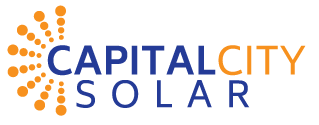How Fast is Solar Power Technology Getting Cheaper? Should You Wait to Buy?
Our installers and product specialists are often asked by customers, “Why should I buy solar now, and not wait for better technology? Won’t next year’s solar panels be better than what you have now?”
This question is based upon the assumption that, much as this year’s iPhone is faster and has more features than last year’s model, the capabilities of the solar panels of tomorrow will be leaps and bounds beyond what today’s can manage.
We would love to see the efficiency and output of solar panels improve rapidly, so that we can better meet the world’s growing energy demands in an environmentally friendly fashion. However, there is no magical innovation on the horizon that will render today’s solar panels woefully outdated.
The silicon cells used in solar panels have inherent limits of efficiency, and we’ve just about reached those limits.
A determining factor in the effectiveness of a solar panel is its energy efficiency—the percentage of the sun’s energy that it can convert into usable electricity. Way back in 1960, Hoffman Electronics Semiconductor Division revolutionized the world of solar panel research by creating a solar cell with an energy efficiency of 14%. Today, nearly 60 years later, SunPower’s X22 panel is the most efficient solar panel on the market, with an efficiency of… 22.7%.
How is it that we’ve made so little progress since 1960? In that timespan, computers have become billions of times more powerful, incandescent lights have been replaced by LEDs that produce the same amount of light with only a fraction of the electricity, and cars have become vastly more fuel efficiency. Why have we made so little progress?
Innovations in solar energy haven’t made solar panels vastly more efficient, but rather, vastly more affordable.
The 14% efficiency panels developed by Hoffman Electric back in 1960 were incredibly costly. In fact, this was the case for all solar panels. This is why the technology only saw use in satellites and spacecraft through the 1970s, and then in products with minute energy demands, such as calculators.
Continued developments in solar cell technology didn’t result in solar panels that were vastly more efficient, but which were instead vastly cheaper to make, and within the financial reach of homeowners and small businesses.
Why has solar power become cheaper, but not better?
The problem lies in the inherent qualities of the crystalline silicon used to create solar cells. Scientists believe that the maximum energy efficiency of a crystalline silicon-based solar cell is about 29%. And even that efficiency is unattainable in practice, due to the unavoidable inefficiencies of a fully constructed solar power module.
In short, we’re hitting a ceiling. According to some estimates, in 10 years we’ll have commercially practical panels with efficiencies of about 26%—only about 3 percentage points higher than what a homeowner can buy today.
Some researchers are trying to work around the limitations of crystalline silicon with clever innovations. For instance, one research team created a panel with an efficiency of 44.5%, thanks to a design featured stacked cells and a complex series of lenses. However, the expense and delicate nature of these complex panels will put them out of the reach of consumers for decades—if they ever become affordable.
This is why next year’s solar panels won’t be vastly better than what’s on the market today—we’ve maxed out the limitations of the technology. And unfortunately, there’s nothing new on the horizon. There’s no evidence of some new wonder material that will transform the industry.
The price of solar panels should continue to come down, barring unforeseen developments like the newly imposed tariffs on foreign-made solar panels.
But solar panel prices will not decrease quickly enough to outweigh the benefits of buying a solar power system now.
According to the California Energy Commission, the average household in Sacramento County used 4,795 kWh of electricity in 2016 (the most recent year for which they have data). Even at PG&E’s lowest residential wintertime time-of-use rate, this represents an annual energy cost of $1,283.
Capital City Solar customers typically see their energy bills drop by at least 75% after purchasing a solar power system. Applying that to our unrealistically low annual energy cost of $1,283, that represents a savings of $962.
That solar power system you’re considering right now won’t cost a thousand dollars less this time next year. It will cost you more to wait than it will to buy a system today, and start enjoying a significantly lower energy bill.
To learn more about how solar power can help you save money on your energy bill, contact Capital City Solar today!

